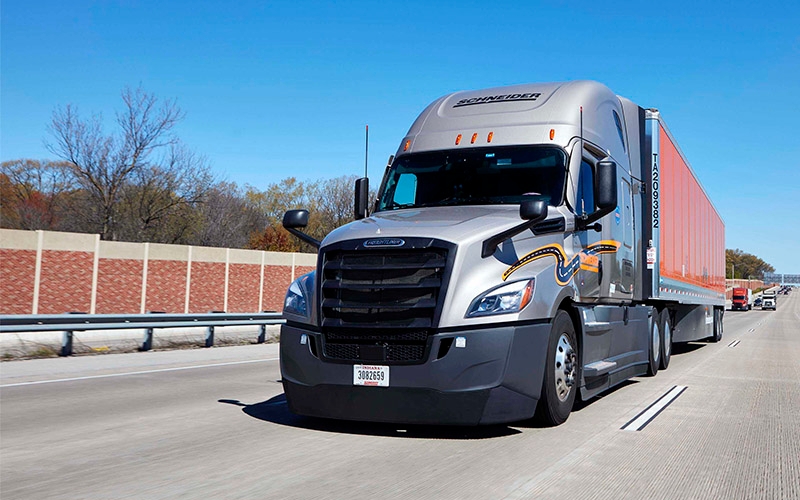As the demand for fast and efficient logistics continues to grow, the role of intermodal truck drivers has become increasingly crucial in the supply chain. With the rise of e-commerce and global trade, the importance of intermodal transportation has never been more significant. In this article, we’ll delve into the daily life of an intermodal truck driver, exploring the challenges, benefits, and realities of this demanding yet rewarding profession.
What is Intermodal Transportation?
Before we explore a day in the life of an intermodal truck driver, let’s briefly define what intermodal transportation is.
Intermodal transportation refers to the use of multiple modes of transportation to move goods from one place to another. This can include trucks, trains, ships, and planes. Intermodal transportation is used to reduce costs, increase efficiency, and improve the speed of delivery.
A Day in the Life of an Intermodal Truck Driver
A typical day for an intermodal truck driver begins early, often before dawn. Here’s an overview of what a day in the life might look like:
- Pre-Trip Inspection: Before hitting the road, drivers must conduct a thorough pre-trip inspection to ensure their vehicle is in good working condition. This includes checking the brakes, tires, and cargo securement.
- Pickup and Delivery: Intermodal drivers transport containers from one location to another, often between ports or rail yards. They must navigate through busy roads, navigating through heavy traffic and tight schedules.
- Terminal Operations: Drivers spend a significant amount of time at terminals, where they pick up and drop off containers. This involves communicating with dispatchers, other drivers, and terminal staff to ensure a smooth operation.
- Freight Handling: Intermodal drivers are responsible for handling freight at terminals, including loading and unloading cargo from containers.
- Paperwork and Documentation: Drivers must complete paperwork and documentation, including bills of lading, customs forms, and other regulatory documents.
- Time on the Road: With the increasing demand for intermodal transportation, drivers spend a significant amount of time on the road, often exceeding 10 hours a day.
Challenges Faced by Intermodal Truck Drivers
While being an intermodal truck driver can be a rewarding career, it comes with its fair share of challenges:
- Long Hours: Intermodal drivers often work long hours, including nights, weekends, and holidays.
- Physical Demands: The job requires physical stamina, including lifting heavy loads and working in all weather conditions.
- Time Away from Home: Intermodal drivers often spend weeks or even months away from home at a time.
- Regulations and Compliance: Drivers must adhere to strict regulations and guidelines, including hours-of-service rules and safety protocols.
- Equipment Maintenance: Drivers are responsible for maintaining their vehicles, which can be a significant challenge. Intermodal logistic
Benefits of Being an Intermodal Truck Driver
Despite the challenges, being an intermodal truck driver offers many benefits:
- Job Security: The demand for intermodal transportation continues to grow, providing job security for drivers.
- Competitive Pay: Intermodal drivers are often paid well, with median salaries ranging from $60,000 to over $100,000 per year.
- Opportunities for Advancement: Experienced drivers can move into leadership roles or start their own trucking companies.
- Variety: Intermodal driving offers a unique combination of on-road driving and terminal operations.
- Sense of Accomplishment: Drivers take pride in knowing they play a critical role in keeping the supply chain moving.
Conclusion
Being an intermodal truck driver is a demanding yet rewarding profession that requires physical stamina, attention to detail, and strong communication skills. While the job comes with its challenges, it also offers competitive pay, job security, and opportunities for advancement. As the demand for intermodal transportation continues to grow, the role of intermodal truck drivers will become increasingly crucial in the supply chain.


